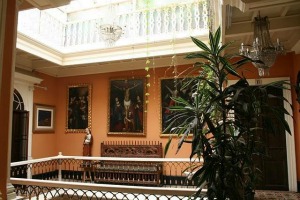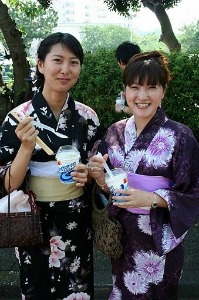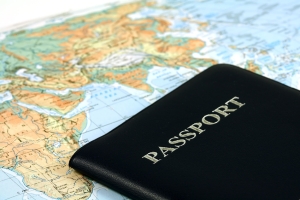Soft Power in a Hostel Environment
Travel has a long history as a medium for public diplomacy considering the role travelers have played in communicating culture and ideas of far-away lands. These peripatetic souls often provide practical readings of the global zeitgeist while carrying out their meanderings. Famous travelers such as Marco Polo, Ibn Battuta, Leo Africanus and Benjamin of Tudela are just a few of the luminaries whose work influenced generations long ago to wonder what lay beyond their city gates and made the world just a little bit smaller with their writings.
Some of the first contemporary machinations of travel diplomacy include Mark Twain’s famous book Athens and Sparta seek to welcome those of China’s Middle Kingdom to the isles where triremes once waded. All the while, the eternal city of Damascus again plays host to the meeting of Occident and Orient as music festivals fill the medieval citadel of the Syrian capital and travelers are beckoned back to the City of Jasmine. The whole Middle East is experiencing a tourism renaissance, as the Masbirim (“Explainers”) campaign, an effort to get the nation’s trav-eling denizens to act as citizen diplomats while they wander the globe—Israel is attempting to alter its negative international image through the soft power tool of tourism.
Hostel in Lima, Peru. Photo courtesy of Paul Rockower © 2008
What remains perhaps the purest form of travel as public diplomacy is embodied in the youth hostel. Youth hostels facilitate cultural exchange by offering cheap accommodation for international and domestic travelers, the majority of whom are students and backpackers, to bed down for the night. Hostels are more effective than hotels for tourism diplomacy because they often provide more communal environments such as shared dorm rooms, kitchens and salons to encourage social interaction between the diverse guests. The combination of cheap accommodation, communal environs and international clientele makes the youth hostel a prime location for the ever-important exchange of ideas- a notion central to the field of public diplomacy.
The overarching youth hostel movement, Hostelling International (HI) is more than a century old. In 1909, German schoolteacher Richard Schirmann launched the idea of the youth hostel (Jugendherberge) after he and his pupils were forced to lodge in farms and schools during a school trip. Three years later, Schirmann created the first youth hostel at the Altena Castle in Westphalia, Germany.
Today, Hostelling International represents one of the largest international membership organizations, with more than 3 million members; hostels connected with the HI movement provide more than 35 million overnight stays a year through more than 4,000 hostels in over 80 countries that span the globe. The Hostelling International movement’s mission statement is saturated with the ideals of public diplomacy:
Beyond the hostels affiliated with HI, there are also a large variety of independent hostels that also cater to the needs of travelers, backpackers and all others abroad.
As such, the hostel has an unmatched ability to attract travelers of all ages and representing diverse nationalities, cultures and social backgrounds. It provides these itinerants with a safe space to informally share their experiences, and in turn learn about themselves, their traveling compatriots and their environment. Public diplomacy is ultimately a field predicated on the communication of culture and values in the international arena, in this regard, the youth hostel and its ability to facilitate the exchange of ideas represents the essence of the public diplomacy.
The medium of travel and tourism represent an important avenue of public diplomacy, and an under-appreciated source of soft power. The power of attraction by virtue of a country’s historical or cultural draw is a valuable aspect of soft power influence. The ability to communicate a country’s values and culture to the strangers in its midst can enhance soft power in ways not often fully realized. If, as Mao said, (hard) power comes from the barrel of a gun, then perhaps in our increasingly globalized and connected world, soft power can be found tied to a luggage tag.
Traditionally-dressed Japanese girls enjoy American-style treats. Photo courtesy of Paul Rockower © 2009
Tags
Issue Contents
Most Read CPD Blogs
-
January 29
-
January 20
-
January 28
-
January 2
-
January 8
Visit CPD's Online Library
Explore CPD's vast online database featuring the latest books, articles, speeches and information on international organizations dedicated to public diplomacy.











Add comment